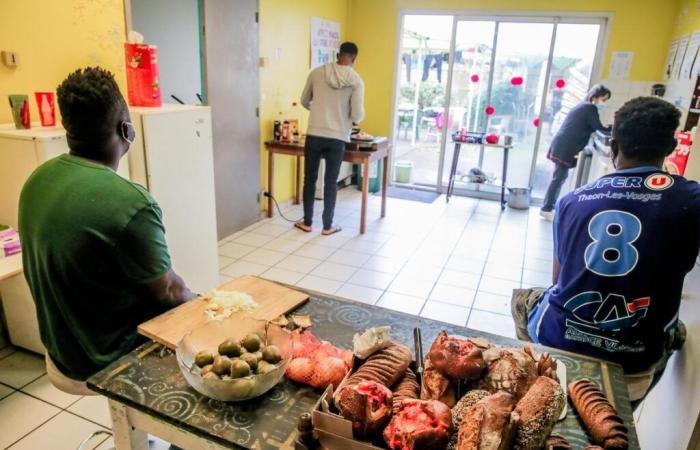LThis figure gives an idea of the scale of the task: 52.5 million euros dedicated in 2023 by the Gironde Departmental Council (CD 33) to the care of young adults. A management to which the Regional Chamber of Accounts (CRC) of Nouvelle-Aquitaine devoted a report, published this Wednesday, December 18.
It is only since a legislative change on February 7, 2022 that the reception of minors by Child Welfare (ASE) has been extended to young adults, from 18 to 21 years old. But Gironde did not wait for this date and is being proactive on this issue, notes the CRC: “the Department has been committed for a long time and well before the obligation. It has adopted a real strategy for child protection, as illustrated by successive departmental plans and the role entrusted to the Departmental Child Protection Observatory.”
Between 2019 and 2023, the number of young people supported in this framework increased from 1,057 to 1,392, with a “reservoir” of 5,000 minors monitored within the framework of the ASE, within an overall budget of 330, 5 million euros (personnel costs included). The ASE is the first budget of the Department, which President Jean-Luc Gleyze has made a hobby horse in the face of the financial “asphyxiation” of communities which he blames on the State.
The CRC places this increase in its demographic context: “Between 2022 and 2022, the Gironde population increased by 300,000 people to reach approximately 1.6 million inhabitants. In addition to its growth, its youth is also characterized by social fragilities, with a poverty rate which is almost double that of the general population”, all requiring investment from the Department “in a vast territory” (the largest in France) .
Accommodation
The 52.5 million allocated to 18-21 year olds are 98.3% directed towards their emergency accommodation. The response to a reality: before the implementation of their monitoring, many “former” ASE members found themselves on the street. Concerning their profile, the CRC notes that a “high proportion (nearly half) of the 1,392 people monitored are former unaccompanied foreign minors” – a data which recalls all the political sensitivity of the file, beyond ( or even because of) its financial aspect.
The other areas of intervention, in addition to housing, are access to financial resources, training or professional integration, care or even support in administrative procedures or in socio-educational matters. Although it recognizes that the support as carried out by CD 33 is “effective”, the CRC nevertheless considers that it “would benefit from being better monitored and evaluated” and that “partnership relations need to be further formalized”. The judges thus formulate a series of eight recommendations.
“Between 2019 and 2023, the number of young people supported within this framework increased from 1,057 to 1,392, with a “reservoir” of 5,000 minors monitored within the framework of the ASE”
The administration notes, to begin with, “the absence of a protocol” prescribed by the Code of Social Action and Families (CASF) and intended to coordinate actions, in particular with the State and the Region. And also that Gironde “has not set up a departmental commission for access to autonomy, provided for by the same CASF. The jurisdiction recommends to CD 33 to put these tools in place, and also to adopt a “departmental regulation for social assistance to children”.
Quantitative monitoring
In its response, CD 33 indicates that “its future departmental plan for children and families plans to organize the partnership and identify a certain number of priority axes and that it is “in this framework that will be worked and then signed the planned protocol.
Another point to improve: “Interviews with any minor received, one year before reaching the age of majority, and assessments six months after leaving the ASE, are not systematized and are not subject to quantitative monitoring. The court invites the Department to remedy this. Also to be put in place, to cope with the increase in the number of young people being monitored: a reform of the territorial organization by assigning local ASE referents to the territorial centers, so that each adult being monitored has a single contact. This “territorialization” was hampered a year ago by the refusal of family assistants who welcome minors.
Since then, work has resumed and the Departmental Council believes that this territorial reform, begun last October, as well as the future departmental child protection plan, on which the community has been working since the beginning of 2024, will make it possible to implement the recommendations. of the CRC.






